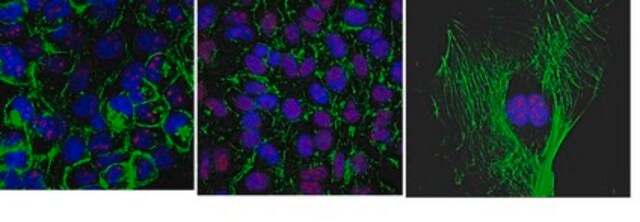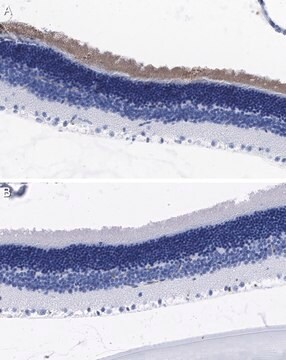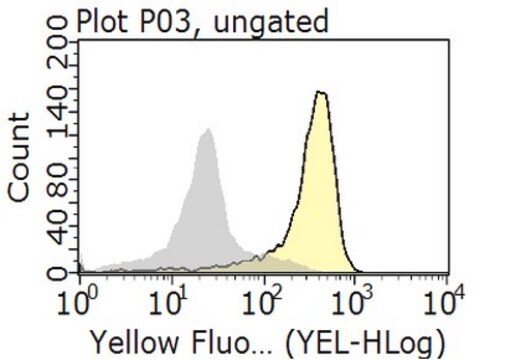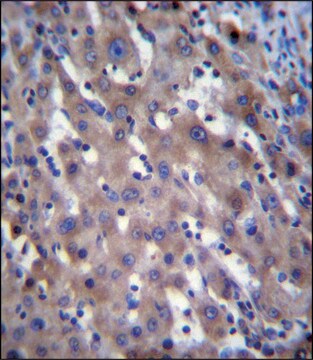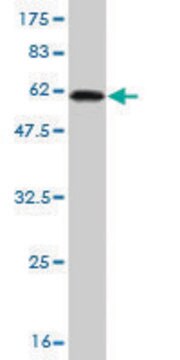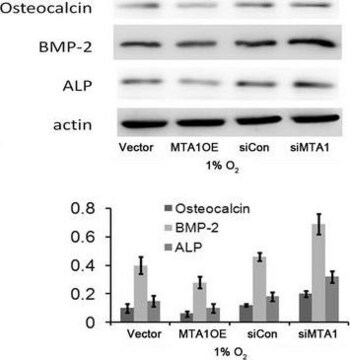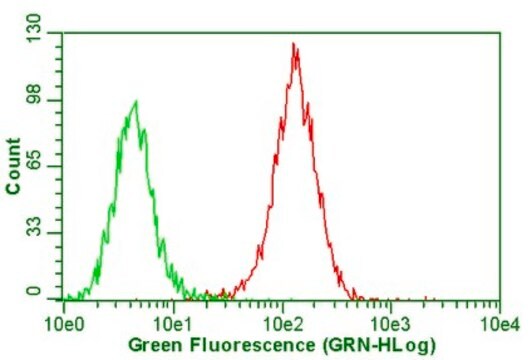MABN282
Anti-CNGB1 Antibody, clone 5A5.1
clone 5A5.1, 1 mg/mL, from mouse
Synonym(e):
Cyclic nucleotide-gated cation channel beta-1, Cyclic nucleotide-gated cation channel 4, CNG channel 4, CNG-4, CNG4, Cyclic nucleotide-gated cation channel gamma, Cyclic nucleotide-gated cation channel modulatory subunit, Cyclic nucleotide-gated channel
About This Item
Empfohlene Produkte
Biologische Quelle
mouse
Qualitätsniveau
Antikörperform
purified immunoglobulin
Antikörper-Produkttyp
primary antibodies
Klon
5A5.1, monoclonal
Speziesreaktivität
human
Konzentration
1 mg/mL
Methode(n)
western blot: suitable
Isotyp
IgG1κ
NCBI-Hinterlegungsnummer
UniProt-Hinterlegungsnummer
Versandbedingung
wet ice
Posttranslationale Modifikation Target
unmodified
Angaben zum Gen
human ... CNGB1(1258)
Allgemeine Beschreibung
Immunogen
Anwendung
Neurowissenschaft
Entwicklungsabhängige Signalübertragung
Qualität
Western Blotting Analysis: 1.0 µg/mL of this antibody detected CNGB1 in 10 µg of Y79 cell lysate.
Zielbeschreibung
Physikalische Form
Lagerung und Haltbarkeit
Haftungsausschluss
Sie haben nicht das passende Produkt gefunden?
Probieren Sie unser Produkt-Auswahlhilfe. aus.
Lagerklassenschlüssel
12 - Non Combustible Liquids
WGK
WGK 1
Flammpunkt (°F)
Not applicable
Flammpunkt (°C)
Not applicable
Analysenzertifikate (COA)
Suchen Sie nach Analysenzertifikate (COA), indem Sie die Lot-/Chargennummer des Produkts eingeben. Lot- und Chargennummern sind auf dem Produktetikett hinter den Wörtern ‘Lot’ oder ‘Batch’ (Lot oder Charge) zu finden.
Besitzen Sie dieses Produkt bereits?
In der Dokumentenbibliothek finden Sie die Dokumentation zu den Produkten, die Sie kürzlich erworben haben.
Unser Team von Wissenschaftlern verfügt über Erfahrung in allen Forschungsbereichen einschließlich Life Science, Materialwissenschaften, chemischer Synthese, Chromatographie, Analytik und vielen mehr..
Setzen Sie sich mit dem technischen Dienst in Verbindung.